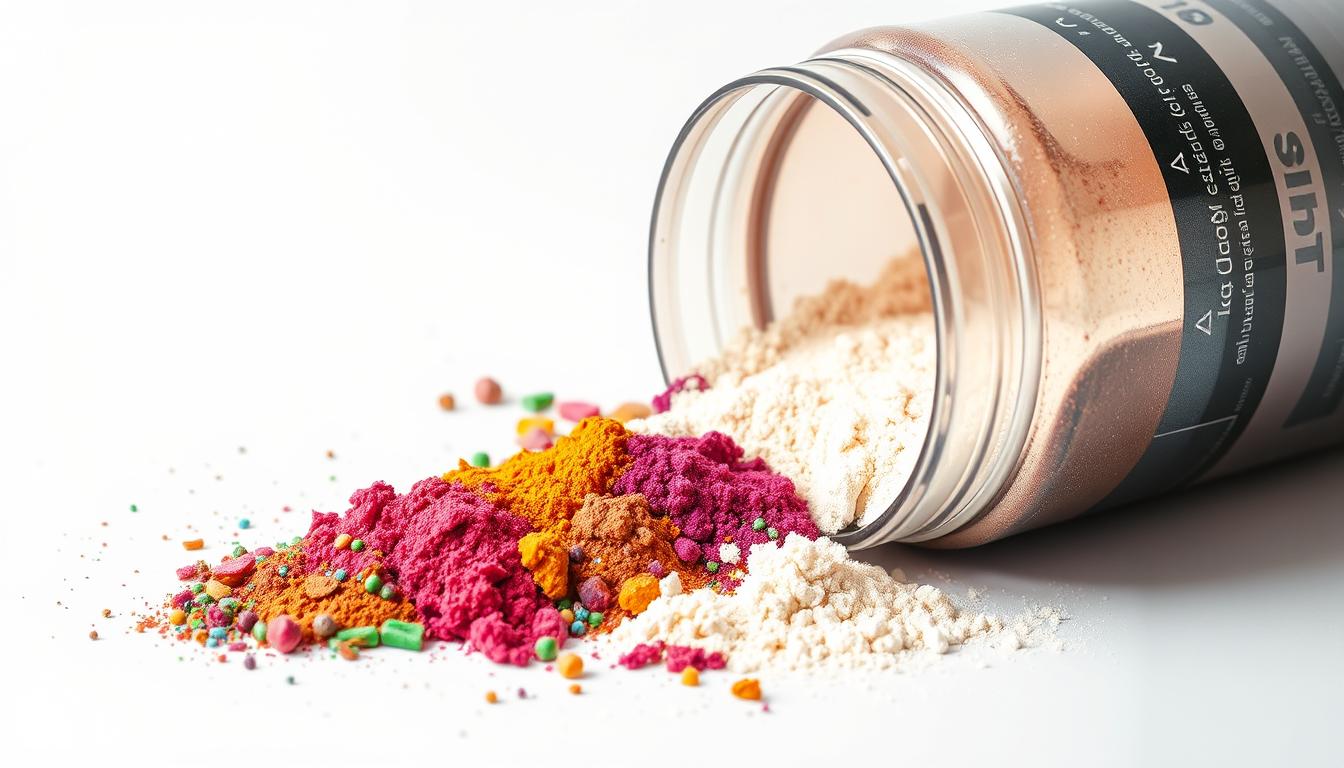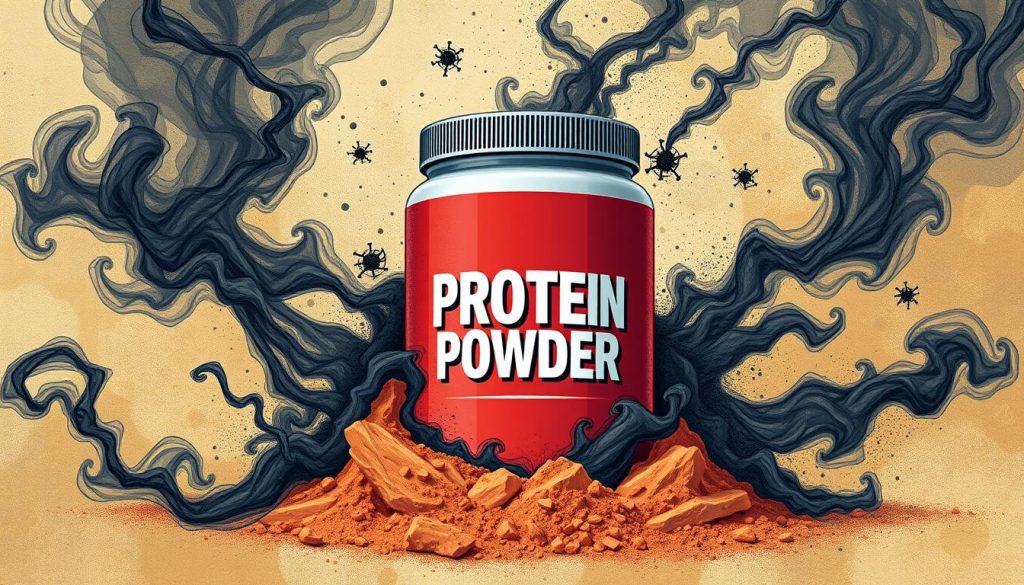

Could the protein supplement meant to enhance your fitness routine actually be harboring harmful substances? As protein powder’s popularity surges among health-conscious individuals, the conversation surrounding the contaminants it might contain becomes increasingly pressing. Experts caution that while protein powders can be a convenient source of nutrition, not all products are created equal.
Understanding the toxins found in protein powder is key to making informed decisions. This section aims to shed light on what experts advise regarding the quality and safety of protein powder. It helps consumers better navigate the complexities of these popular supplements.
Toxins Found In Protein Powder—What Experts Want You To Know
Many people use protein powders to boost their diet. But, it’s important to know about protein powder toxins that might be in them. Analyzing protein powder ingredients helps you choose wisely.
Understanding Protein Powder Ingredients
Protein powders have different ingredients like whey, casein, and soy. These can be good for you, but they can also get contaminated. Even the best sources can have harmful stuff in them.
Common Protein Powder Contaminants
Experts say some protein powders have bad stuff in them. Things like lead, arsenic, and cadmium are big worries. Some also have artificial sweeteners and chemicals that aren’t good for you. Knowing where the ingredients come from is key to staying safe.

Health Risks Associated with Protein Powder Toxins
It’s important to know the health risks of contaminated protein powder. Short-term effects can warn us to be careful. Long-term risks are even more serious, affecting those who use protein powder daily.
Short-Term Adverse Effects
Protein powder with toxins can cause short-term problems. You might feel sick to your stomach, get bloated, or have diarrhea. Allergic reactions can also happen, leading to skin rashes or breathing issues.
Systemic inflammation can make you feel uncomfortable and unwell. These symptoms might make you think twice about using protein supplements. It could affect your nutrition goals.
Long-Term Health Implications
The long-term effects of tainted protein powder are concerning. Exposure to heavy metals in low-quality products can lead to serious health issues. This includes neurological problems and an increased risk of cancer.
Experts stress the need for constant quality checks on protein powder. They advise choosing safe and reliable sources to avoid these risks.
Expert Advice on Protein Powder Safety
Choosing the right protein powder is key to staying safe. Experts offer valuable tips to help you make smart choices. With so many options out there, it’s important to know what to look for.
Choosing High-Quality Protein Powder
Look for brands that have third-party testing. This ensures the quality of the protein powder. Also, check if the ingredients are clearly listed. This way, you know what you’re putting in your body.
Certifications like NSF Certified for Sport or Informed-Sport are good signs. They mean the product has met high safety standards. This gives you peace of mind when choosing your protein supplements.
Recognizing Red Flags in Protein Powder Products
Be careful of protein powders with unclear labels or too-good-to-be-true claims. If a product is too cheap, it might not be worth it. It could have low-quality ingredients or even contaminants.
Learning to spot these warning signs helps you make better choices. This way, you can avoid products that might not be safe or effective.
Testing Protocols for Protein Powder Quality Control
Ensuring the safety of protein powder is key, given the lack of strict rules. The core of quality control is thorough testing to spot contaminants. Top brands follow strict standards to keep their products safe from harmful stuff like heavy metals and germs.
Tests like mass spectrometry and inductively coupled plasma are used. They can find tiny amounts of toxins. These tests help ensure products are safe, making consumers trust the brands they buy from.
More people now know how important quality control is. They want the industry to set clear standards. Experts say this will help make products more transparent, helping people choose safe brands. Knowing about these tests helps us pick the best protein powders.